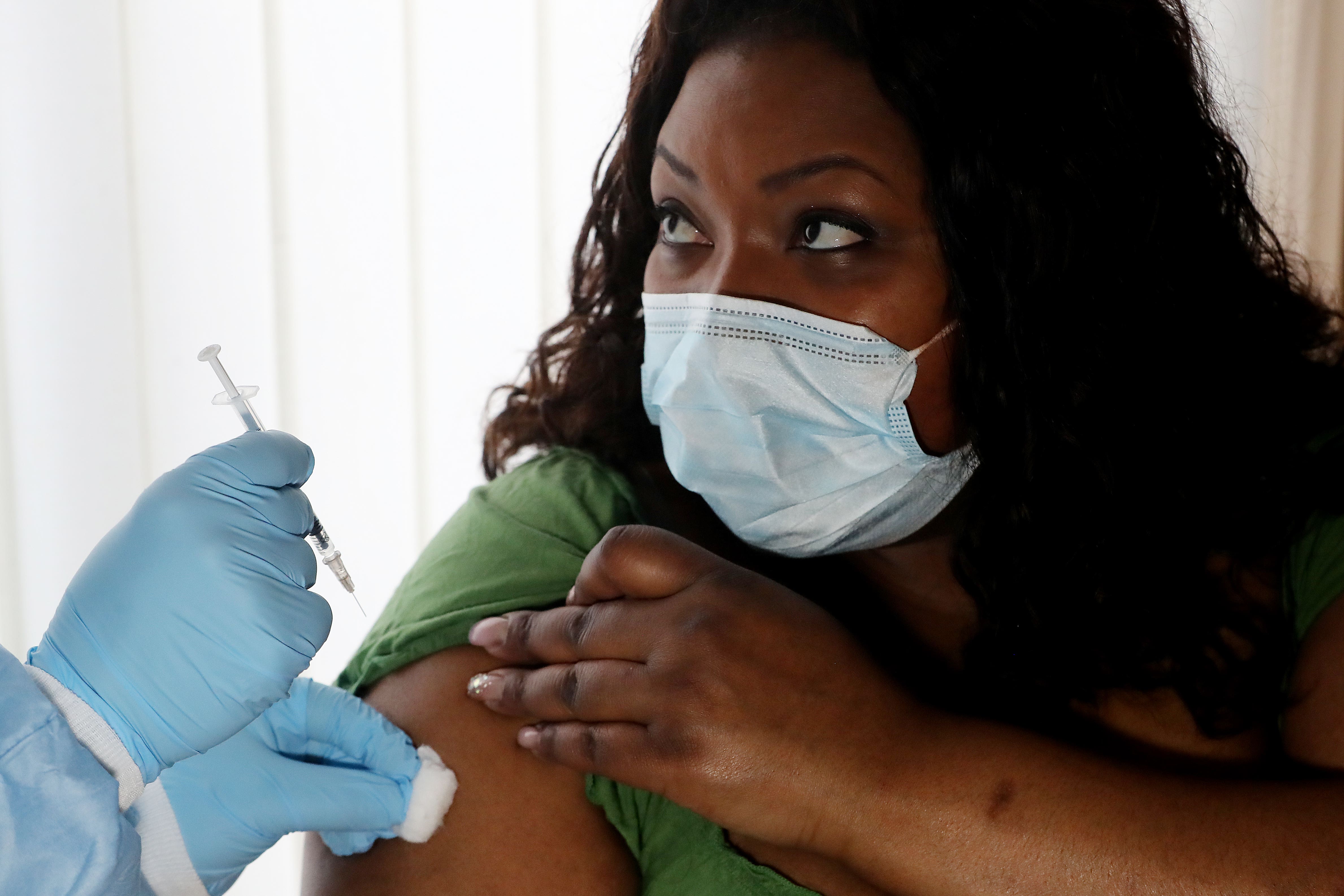Deadline approaching for under-50s to receive coronavirus booster vaccine
The NHS says Sunday February 12 will be the last time people in the age group can have the dose unless they are considered at risk of serious illness.

Your support helps us to tell the story
From reproductive rights to climate change to Big Tech, The Independent is on the ground when the story is developing. Whether it's investigating the financials of Elon Musk's pro-Trump PAC or producing our latest documentary, 'The A Word', which shines a light on the American women fighting for reproductive rights, we know how important it is to parse out the facts from the messaging.
At such a critical moment in US history, we need reporters on the ground. Your donation allows us to keep sending journalists to speak to both sides of the story.
The Independent is trusted by Americans across the entire political spectrum. And unlike many other quality news outlets, we choose not to lock Americans out of our reporting and analysis with paywalls. We believe quality journalism should be available to everyone, paid for by those who can afford it.
Your support makes all the difference.Next week marks the last chance adults aged 49 and younger who have not yet received a full set of coronavirus vaccines can take up the offer of a booster.
The NHS has said Sunday February 12 will be the last day that people aged 16 to 49 can attend a vaccination site for a booster dose.
After this date, the booster jabs will only be offered to people considered to be at risk of serious illness, as recommended by the Joint Committee on Vaccination and Immunisation (JCVI).
The JCVI has also advised that the offer of initial vaccinations to healthy five to 49-year-olds should be withdrawn in 2023 in favour of a more targeted approach, but the Government has not yet made any announcement about future policy.
It has already advised that there should be another autumn vaccination campaign later this year, as well as a potential spring campaign for the most vulnerable.
There are 2,800 sites open across the country next week, with 391,000 appointments available before the programme scales down.
So far 15,000 people have booked a Covid vaccine for next week, the NHS said, after 17.3 million people had a booster jab over the winter.
Overall, 144.5 million coronavirus vaccine doses have been delivered across Britain since the start of the pandemic.
Health and Social Care Secretary Steve Barclay and the NHS director of vaccinations and screening, Steve Russell, urged people to take the final opportunity to get the booster jab.
Mr Russell said: “There is just one week left of the autumn booster campaign and so if you are eligible for a booster but have yet to take up your latest dose, please do so before the end of next week.
“Whether you have had previous doses or a bout of Covid, we know that a booster is the best way to maintain protection against serious illness from Covid for yourself and your loved ones, so please do make the most of the offer while it is available and give yourself both protection and peace of mind for the year ahead.”
Mr Barclay added: “Our hardworking NHS staff and volunteers have done an incredible job getting jabs into arms, and they’re on hand to top up your immunity and keep you and your loved ones protected.”
Coronavirus infections in the UK have dropped for a fourth week in a row, and are at a level last seen at the start of last autumn.
Infections are not falling across all age groups, with increases in England among primary and secondary school children and for 35 to 49-year-olds.
The recent drop in coronavirus patients in hospital has also come to a halt, as health experts said there were “concerning” signs the number may be starting to rise.
A total of 941,800 people in private households in the UK were likely to have had Covid-19 in the week ending January 24, down 15% from 1.1 million the previous week, according to the Office for National Statistics.
This is the lowest UK total since the week ending September 14 2022.